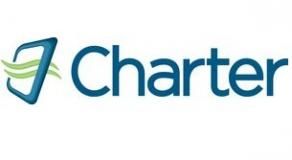Charter’s Preps Next Phase Of All-Digital Expansion

Missouri and southern Illinois are the next stops on Charter Communications’ all-digital upgrade tour.
The MSO announced Thursday that it will begin to reclaim analog channels in those markets (Louisiana, Perryville and Ste. Genevieve, Mo., are not part of this round) in mid-January and intends to complete the transition in the summer of 2014. Charter said it will use its newly reclaimed channels to deliver faster broadband speed and to clear the way for an HDTV lineup comprised of more than 200 channels.
At this stage in the upgrade, Charter is using two-way, VOD-capable boxes outfitted with CableCARDs to fuel its digital transition, and will be urging affected customers (via a mix of messages delivered in direct mail pieces, in bills, and via outbound phone calls) to obtain free boxes within one month of their scheduled upgrade. MSO EVP and chief marketing officer Jon Hargis estimated in a statement that more than 90% of Charter customers in the newly targeted all-digital markets already use a digital cable device for at least one television in the home.
Charter is also working on dual-security boxes that support an integrated version of its legacy conditional access system as well as a new downloadable security platform. The new downloadable system is expected to support a new “World Box” under development that will take advantage of a cloud-centric apps platform.
Charter has already completed all-digital upgrades in several markets, including parts of Texas, California, South Carolina, Michigan and Massachusetts. It plans to complete the upgrade across its 29-state footprint by the end of 2014.
"By removing outdated analog signals, we regain bandwidth in our network enabling us to provide more HD channels and open the door to faster Internet speeds and future innovation," said Charter president and CEO Tom Rutledge, in a statement. "This upgrade speaks to the fact that Charter is providing our customers with the very best products at the very best value and we've invested more than $2 billion in our fiber-rich network to make that happen."
Multichannel Newsletter
The smarter way to stay on top of the multichannel video marketplace. Sign up below.
